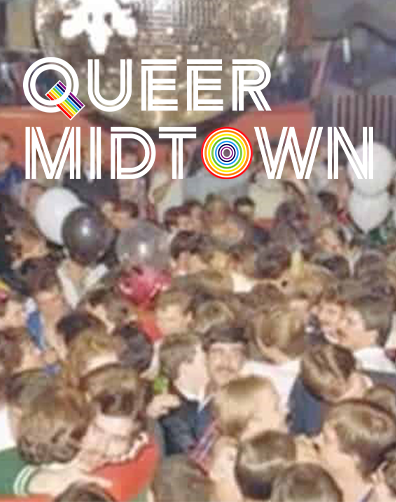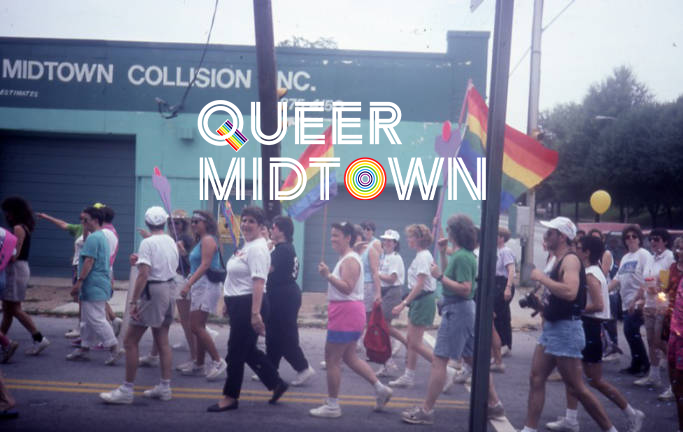Midtown’s Revitalization Has Peachtree Road Race Connection
The world’s largest 10K moved its finish line to Piedmont Park in 1978, just as Midtown was finding its stride.
Published: 06/06/19
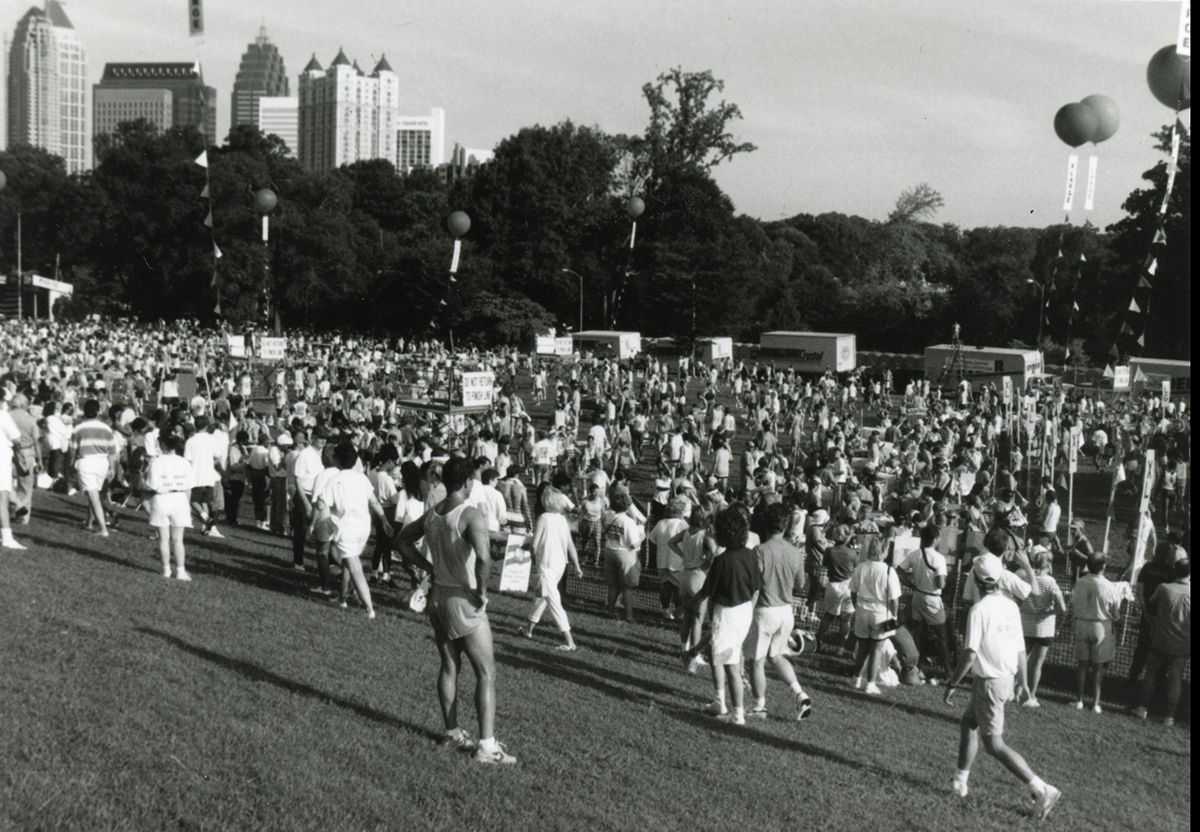 AJC Peachtree Road Race finishers in Piedmont Park in 1992.
AJC Peachtree Road Race finishers in Piedmont Park in 1992.
BY MIA GREEN
Atlanta’s beloved 10K, the AJC Peachtree Road Race, will celebrate its 50th anniversary this year, and the event’s roots in Midtown run deep.
The race, which is also the largest 10K in the world with more than 60,000 participants annually, moved its finish line to Midtown in 1978, where thousands more cheer on loved ones from the sidelines and celebrate with them afterward.
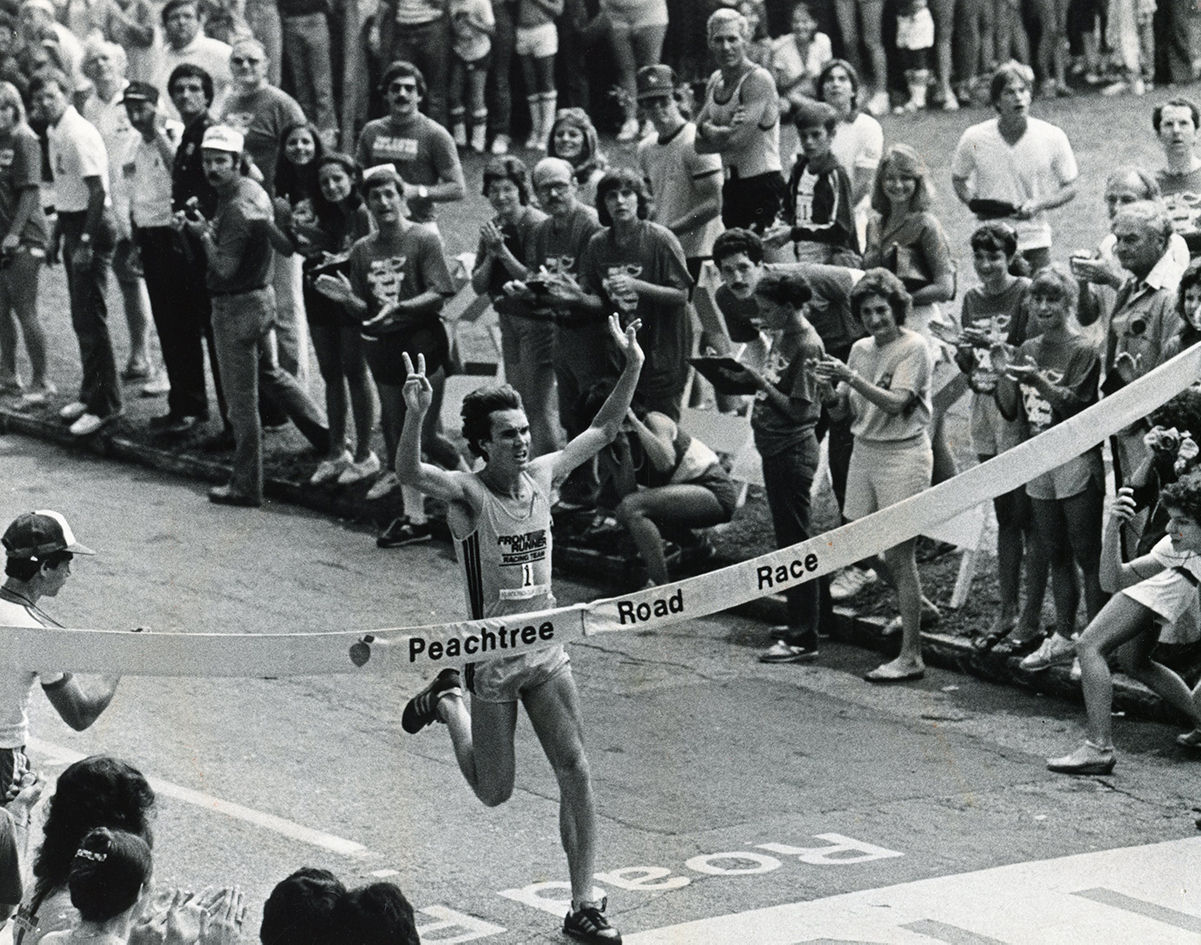 Craig Virgin wins the Peachtree Road Race in 1981.
Craig Virgin wins the Peachtree Road Race in 1981.
A Midtown-based non-profit organization, the Atlanta Track Club, hosts the Peachtree Road Race every year, and we spoke with past director and Midtown Alliance board member Julia Emmons about why the finish line was moved from its original location at what is now Woodruff Park to Piedmont Park.
“Famously, we got within a quarter-mile of the finish line and had to walk in — something had to be done,” Emmons said of the Peachtree’s original location. “The AJC was a sponsor by then, and the number of runners continued increasing.”
Hand in Hand Success
Piedmont Park happened to be 10 kilometers away from the race’s starting point in Buckhead, and it seemed like a natural solution. The move also “coincided perfectly with the revitalization of Piedmont Park and Midtown,” said Emmons.
Before Midtown Alliance and the Piedmont Park Conservancy were established (in 1978 and 1989, respectively), both went through periods where they were considered areas to be avoided by some Atlantans.
“I often say Midtown goes as Piedmont Park goes, and Piedmont Park goes as Midtown goes,” said Piedmont Park Conservancy President and CEO Mark Banta, who is also a Midtown Alliance board member. “When we see success happening in Midtown, it correlates to success in Piedmont Park. When Piedmont Park is safe and active, it helps reinforce what Midtown is doing.”
Now Emmons says the park is “integral” to the race’s success, and the Atlanta Track Club does its part to give back to the Piedmont Park Conservancy, a public-private partnership. The permitting fees the track club pays to finish in the park go back to the city, which owns the land. The club has also contributed by resodding parts of the park, remodeling 14th Street Gate, rebuilding the Active Oval running track and adding water fountains.
“They are an extraordinarily valued partner and it’s a mutually beneficial relationship, a mutual love affair,” Banta said. “We’re not supposed to have favorites, but it’s one of our favorite events. We’re honored that Piedmont Park is the place this all comes to fruition.”
Another benefit of Midtown is its three MARTA stations, Arts Center, North Avenue and Midtown, Emmons said. Together, the capacity of the park and of MARTA helps limit the size of race, and she thinks 60,000 is “plenty of people.”
Atlanta's Love For the Peachtree
Except for 2008, when a drought prevented the race from finishing in the park, the finish line has been in or around Piedmont Park every year since 1978. Various organizations host parties to celebrate the finishers, and people line Peachtree to watch the runners, much like a parade. The race course is lined with the most people in Midtown from the Brookwood bridge to Piedmont Park. One prime viewing location is Midtown's Colony Square, whose festivities include light bites, beverages and a custom photobooth for runners to stop and snap a quick race photo.
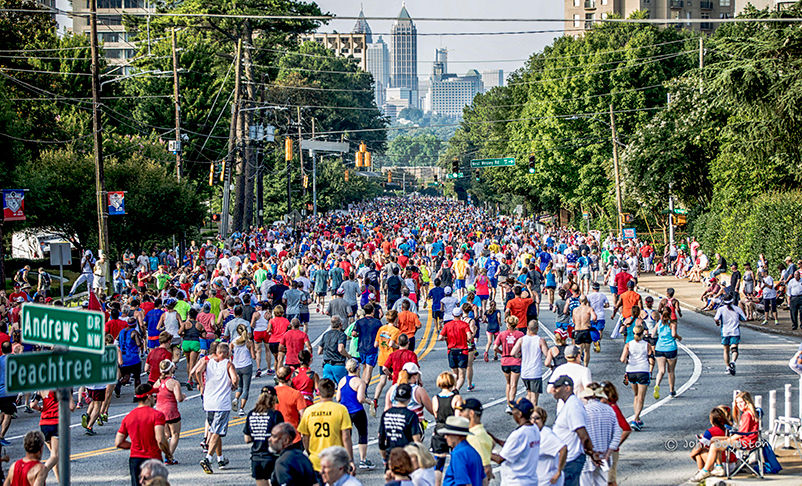 Runners leaving Buckhead for Midtown.
Runners leaving Buckhead for Midtown.
“I think we’re the only event that ties this entire town together,” Emmons said. “A whole lot of people have tried to recreate the Peachtree Road Race, and nobody can.”
Emmons served as director of the Atlanta Track Club until 2006, though she reportedly still advises current director Rich Kenah when called upon. During her tenure, she helped the race implement waves, or smaller start groups, that make it possible for 60,000 people to run the race every year. Still, participating in the Peachtree is a hot ticket — if you aren’t a track club member, you have to enter the lottery, and many lottery registrants are not selected. Emmons likens Atlanta’s zeal for the Peachtree to falling in love. It’s hard to pinpoint exactly how it happened, but the passion can’t be denied.
“It’s a silly idea, to wake up at 5 a.m. on a holiday in the middle of the summer in the South and go run six miles,” Emmons said. “The town fell in love with the Peachtree in the 1970s, and it became very important to them. It really caught on.”
Sign up for the Atlanta Track Club here.

